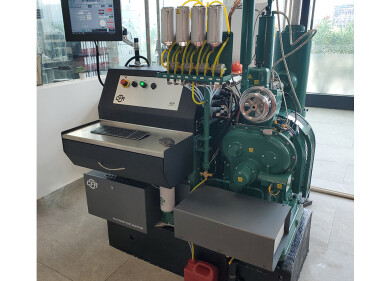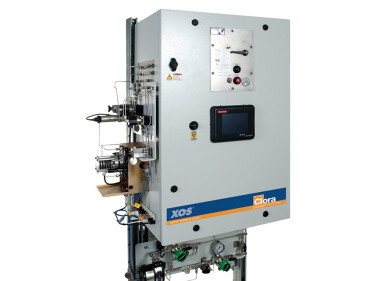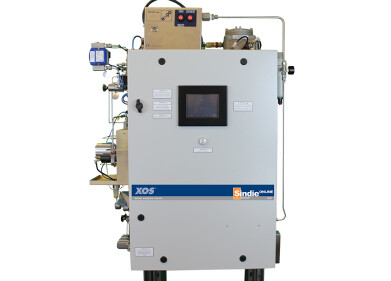Analytical instrumentation
Portable IR Analysers Provide Comparable ASTM/EN Data for Biodiesel Blend Measurements While Saving Time and Money
Aug 02 2013
Both EN 14078 and ASTM D7371 methods for measuring the percent biodiesel in diesel fuel use infrared analysis as the analytical method and are based around using an FTIR spectrometer which has the capability to do a multitude of analyses besides the biodiesel in diesel measurement. This is great for a laboratory where various biofuels measurements are required. However, if the only measurement you need to make is biodiesel blend, simpler infrared (IR) analysers that only look at the frequency for biodiesel can be used. Reducing the complexity not only lowers the price but also makes it easier to use for non-technical personnel. Simplification also makes for a more rugged and portable system that can be operated right at a loading rack.
For the biodiesel measurement, IR light passes through the fluid and the amount of light absorbed by the biodiesel in the sample is measured. The absorbance increases and decreases with the biodiesel concentration so the IR absorbance can be correlated to a percent value. The simplified filter based infrared analysers use the same infrared measurement as FTIR spectrometers so results are comparable to both methods.
The most common concern is how filter-based infrared analysers compare to other reference methods. When single wavelength (InfraCal Biodiesel Blend Analyser) and spectral range (InfraSpec VFA-IR Spectrometer) filter-based analysers were compared to ASTM D7371 and EN 14078, they performed as well as the laboratory methods.
One disadvantage with the EN 14078 sampling method is that all samples require dilution with cyclohexane. This adds an awkward step to the analysis along with an added chance for operator error in the dilution process. The cell is also difficult to clean which adds the risk of leaving residual fuel in the cell that could lead to errors in subsequent samples. The calibration procedure for EN 14078 uses a linear regression calibration. One concern with this calibration method is some diesel fuels could potentially cause a reading offset.
ASTM D 7371 specifies an attenuated total reflection (ATR) sample system on an FTIR spectrometer to overcome the limited measurement range of a transmission sample system. The short effective pathlength of the ATR crystal allows measurement of samples having up to 100% biodiesel without dilution. The exposed ATR crystal is easy to clean reducing contamination issues.
The ASTM method utilises a chemometric calibration to try to account for the baseline offset that could come from different diesel fuels. It requires 70 calibration standards and uses three base diesel fuels. While a chemometric calibration will help with reducing the effect of different diesel fuels, there still could be some outlier diesel fuels that cause a reading offset.
The Wilks (USA) InfraCal Biodiesel Blend Analyser incorporates the most trouble-free portions of each method and is less expensive, easier to operate and more rugged than an FTIR spectrometer. A linear calibration similar to the EN 14078 method simplifies the calibration procedure. The exposed ATR crystal allows for easy introduction and cleaning of the sample as well as the extended measurement range from 0.2-100% without the need for sample dilution. The operator simply places a sample on the sample plate, selects the “run” button and a minute later the result is displayed. The plate is cleaned and the analyser is ready for the next sample.
While FTIR spectrometers have the capability to do much more than a simple biodiesel blend analysis, the InfraCal Biodiesel Blend Analyser is an ideal workhorse to provide on-site biodiesel measurements for those individuals who only need to do a routine blend check – easily, quickly and reliably.
Digital Edition
PIN 25.6 Buyers' Guide
January 2025
Buyers' Guide Directory - Product Listings by Category - Suppliers Listings (A-Z) Articles Analytical Instrumentation - ASTM D7042: The Quantum Leap in Viscosity Testing Technology -...
View all digital editions
Events
SPE Hydraulic Fracturing Technology Conference and Exhibition
Feb 04 2025 The Woodlands, TX, USA
Feb 05 2025 Guangzhou, China
Trinidad and Tobago Energy Conference 2025
Feb 10 2025 Point Lisas, Trinidad
Feb 11 2025 Lagos, Nigeria
Feb 13 2025 Manama, Bahrain



















